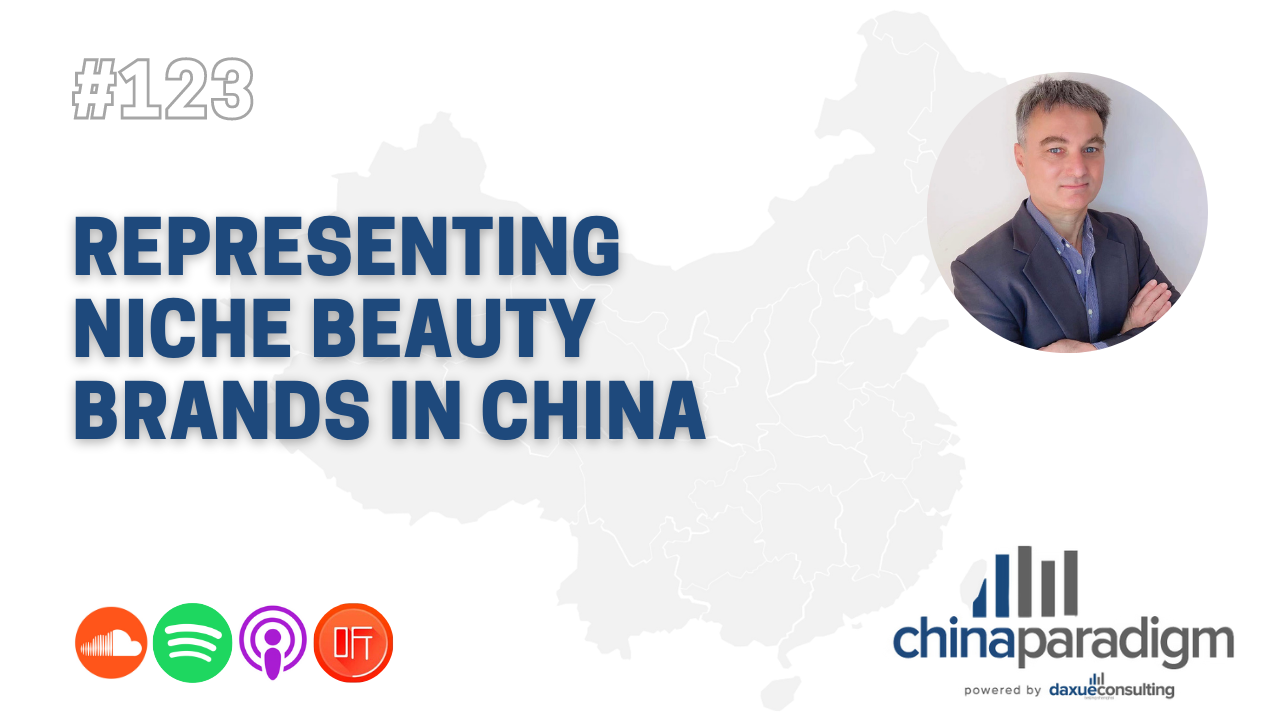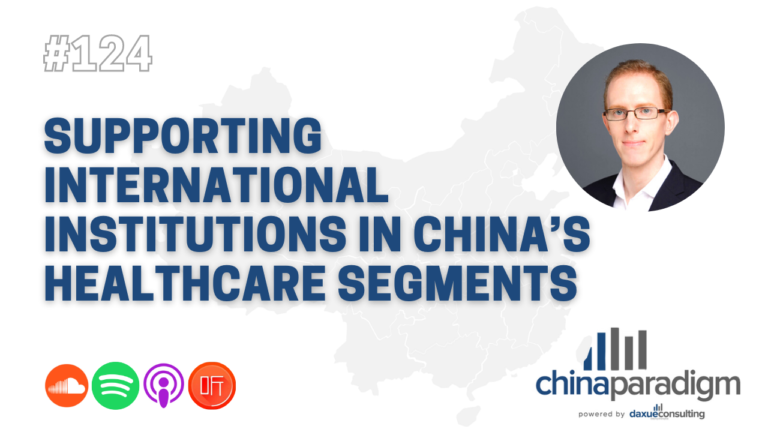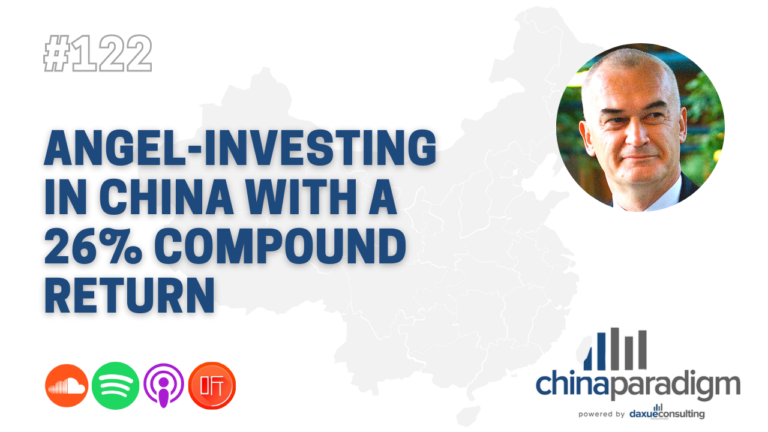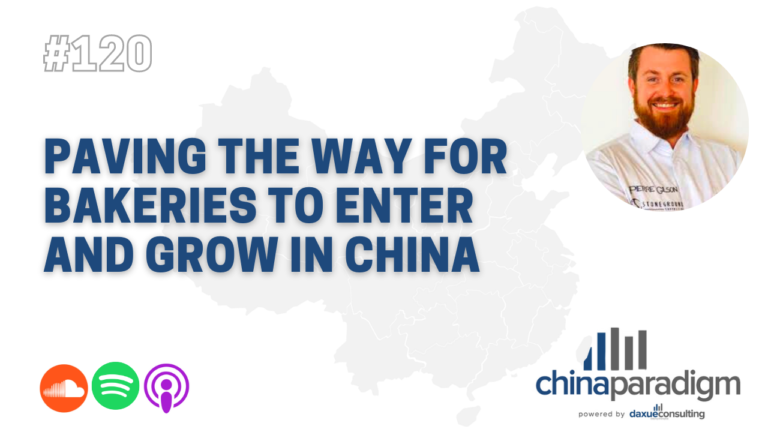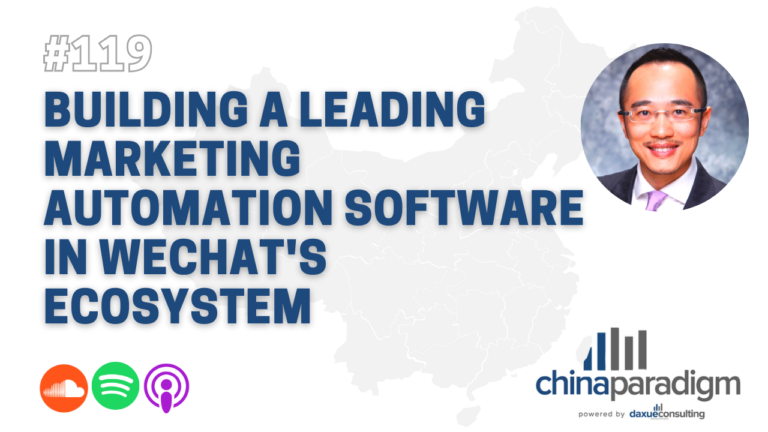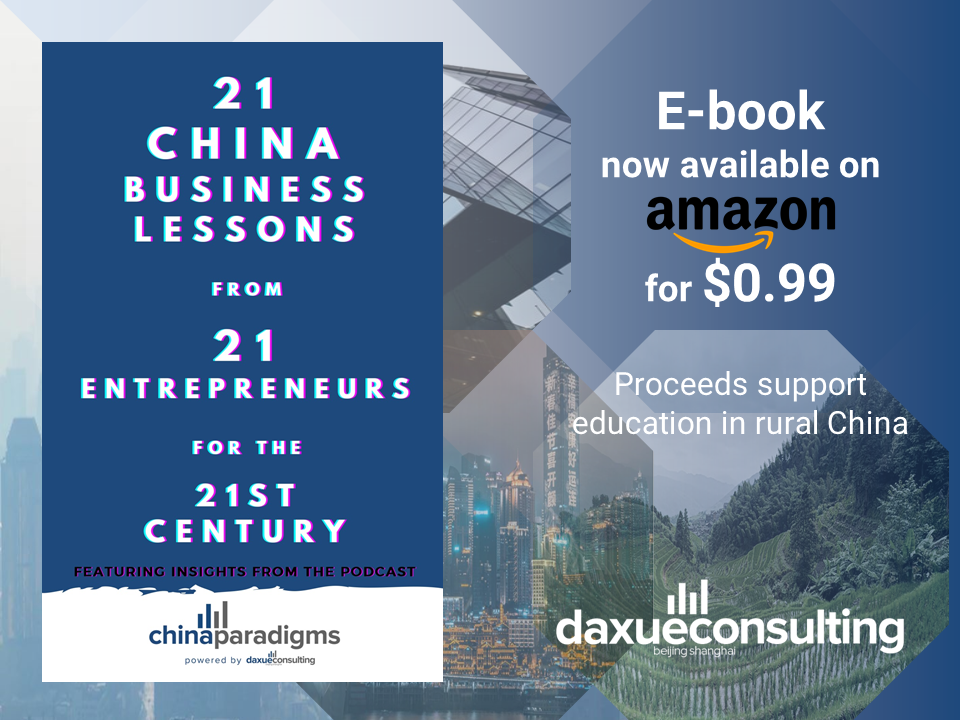Jean-Philippe Benoist is the co-founder and CEO of GED. They help small foreign beauty brands establish an official online presence and generate sales in China (the reason we say “official” will be explained later). Jean-Philippe and his team are experts when it comes to identifying small niche brands that are doing well domestically and have the potential to do well in China. He has accumulated over 17 years’ worth of experience in the beauty industry in China. They currently partner with about 20 foreign brands in the make-up, skincare, beauty products, and perfume industry. This podcast is a must-listen for businesses that want to know how small foreign beauty brands can succeed in China.

Listen to the full China Paradigm episode 123 on Youtube, Apple Podcast, Spotify, Soundcloud, or Ximalaya.
How small foreign beauty brands can succeed in China
In Jean-Philippe’s opinion, small foreign beauty brands can succeed in China if they meet some of the following criteria
- Have a certain level of success in your domestic market
- Be unique, don’t be easily copy-able, because you will be copied!
- Be of excellent quality, Chinese consumers are very discerning
- Have a good brand story or an interesting founder story
How GED help small foreign beauty brands succeed in China
- Generate brand awareness through their own network of KOLs. Focusing on one SKU, the brand’s hero product
- Import and store your brands products in their warehouse
- Start selling your products on Taobao. After generating a certain volume of sales, move onto platforms
- Will not lower the unit price of your brand’s products on Chinese ecommerce sales holidays.
What else help small foreign beauty brands succeed in China?
The first thing GED will do is search the Chinese internet to see if somebody is already selling the brand’s products on Chinese e-commerce platforms (to the surprise of most of these small niche brands, their products are more often than not selling in China by 代购 – daigou already), so you should try and find out if that is the case and deal with it as you see fit. This is a positive indicator as to whether or not small foreign beauty brands can succeed in China.
GED will start by selling the brand’s hero products on Taobao. If it generates significant traffic, then GED will consider allowing the brand to begin selling on Tmall.
Price harmonization when selling in China
Jean-Philippe’s advice would be to maintain price harmonization when selling in China. Chinese consumers are wary of and can easily find out if your brand’s products are significantly more expensive in China as compared to the brand’s prices in its domestic market. In the case of significantly different prices, Chinese consumers will leverage their social media networks, asking friends of friends who live in the brand’s country to buy the product and ship it to China for them.
This shows the dedication of Chinese consumers to brands, despite the brand engaging in China pricing. Ordinarily, GED does not see daigous as something bad, the only issue arises when the daigou are undercharging for the brand’s products. Many consumers may prefer to purchase beauty products from a particular daigou and are happy to pay a premium to do so. However, if a distributor is selling the products below the market rate, GED will authorize the e-commerce platform to prevent that seller from selling the brand’s products.
“We are not trying to compete with Sephora or Watsons. Instead, we promote small, niche, innovative products with attractive design. We show how our product is unique but if we sell hundreds or thousands of units of that product every month, we would be happy. We are not looking to compete in the market for globally recognized brands who generate millions or billions of sales in China every year.”
Jean-Philippe Benoist, cofounder and CEO of GED
GED is the go-to agency for helping small foreign beauty brands succeed in China. In this episode of the China Paradigms podcast, Jean-Philippe shares a decade’s worth of experience his team has acquired. This episode is a must-listen for small niche foreign beauty brands that are considering a soft entry into China.

